- Home
- Holly Black
Welcome to Bordertown Page 11
Welcome to Bordertown Read online
Page 11
She snorted again. “Shannon, you’ve lived in Bordertown for three years. You are surrounded by paintings and sculpture and kinetic art and dance and music. How is it possible that you haven’t been looking at paintings?”
“I look at JPEGs,” I said.
“All right. JPEGs work, too. Ever wonder why sometimes you’ll see something, something made up, something that never happened—maybe something that looks like nothing in the real world at all—and you’ll want to look some more? Why a line of music that doesn’t sound like any words your mind can turn into meaning still stops you in your boots and makes you want to listen?”
“Sorta. I guess.”
“Shannon Klod, I absolutely refuse to believe that you don’t have any aesthetic sense. You don’t live in a cardboard box. You don’t sleep on plain sheets. You don’t cut your hair with children’s scissors when it gets in your eyes and forget about it the rest of the time. You’d rather eat good food than bad food. You can pose all you want as a robotic techie who has no time for all this artsy-fartsy crap, but it doesn’t wash with me.”
This is the thing about Jetfuel: She’s had my number since the first time we talked, her demanding to see one of the peecees I’d brought from the World after the Pinching Off. I knew better than to argue when she got like this. “Fine,” I said. “Fine, fine. I am as dainty an artiste as any you’ll find starving in a Mock Avenue garret. My life revolves around plumbing the unplumbable and reveling in its mystery. There are shades of green and blue that move me to tears. What’s your point?”
“This is the point: Art moves you in some way. It fits and feels right, or it doesn’t fit in a way that feels deliciously wrong. You can talk all you want about brushstrokes or shades of green and blue, but none of those are the things that move you, right? It’s something else: something you might call spiritual. Art is art because it makes you feel artful. And that’s the basis for the Realm’s legal system.”
I shook my head. We were getting close to the BINGO office, where once again I’d have to be Responsible Grown-up Shannon Klod, but for now, I was really enjoying this moment with Jetfuel, recapturing an excitement I hadn’t felt since the first two nodes went live. “I don’t understand,” I said. It felt good to admit this—Shannon Klod usually had to have all the answers.
“Human laws and rules are based on, what, mutual understanding. Someone says, ‘I propose a law that makes it illegal to take a dump over here where we all get our water, because that way we won’t all die of poo-poisoning.’ The wisdom of that law is obvious, so, after some debate, we make it a law. But in the Realm, they make laws because the laws make the world a more interesting place—interesting in the way that a painting or a dance or a song can arrest your interest. So you might say, ‘I propose that people who take a dump here should be made to perform a penance by making a willow stop weeping.’ And just like most people understand why poo and the water supply don’t go together and can agree on the human rule, Highborn respond to their rules by their aesthetic sense and agree to the ones that are most beautiful or the most ugly—the ones that make the best art.”
“You’re serious?”
“As a heart attack. So there’s not a law against running a network drop into the lands beyond the Border the way that you think of laws existing. But it’s still forbidden, and the penalties are real.”
“Like what?” I said, thinking of all the money BINGO was bringing in, more than I knew what to do with. “What kind of fines are we talking about?”
“Oh, not fines,” she said. “Those, too, I’m sure. But smuggling carries serious penalties: your heart shrunk to the size of a marble and placed on a cairn in the Grove of Despair for a hundred winters, all the songs snatched from your throat for a time not to exceed the reign of the Blood Queen Under the Sea, that sort of thing.”
I stopped and searched her face. “Tell me you’re joking.”
She shrugged. “Shannon, you’ve been dreaming about this for years, but you’ve never asked me what I know about the Realm. Perhaps it’s time you started.”
I almost said, Of course I didn’t ask you—you’re a B-town halfie! But I knew that would be the wrong thing to say. “How did you find out all this stuff?” I said, trying for delicacy.
“You mean, how did a B-town halfie find out all this stuff, right?” Anger moved across her face, then departed. She smiled her don’t-give-a-damn smile and said, “My big sister came to visit.”
“I didn’t know you had a sister,” I said. I hadn’t ever met Jetfuel’s family, though she’d pointed out their house once as we stood on a rooftop with a cable spool and a witch who dusted it with blessings and wards as it unspooled yard after yard of insulated category-five enhanced wire.
“Half sister,” she said. “From my dad’s first wife.” And I understood. Her father was an elf, a proper one, from what I gathered: highborn and high-blooded with the titles and fancy underpants that went with them. So his first wife, whoever she was, was probably another elf, from before he fell in love with a human woman, and that meant that Jetfuel’s big sister was—
“Your sister’s an elf?”
She nodded and rolled her eyes. “Like, seven feet tall, legs up to here, waist you could wrap one hand around, wrists like twigs, eyes like a cat’s, hair as fine as spun gold. The whole package.” We were standing across the road from BINGO now, neither of us wanting to go inside and break the spell that had come over us, the old excitement. “She came through a year ago. She was ever so excited about this networking stuff. Wanted to see it for herself. Dad’s glad to have her but doesn’t want her hanging out with me in case I corrupt her ever-so-pure highbornedness. So of course she sneaks out to see me every chance she gets.”
I couldn’t believe what I was hearing. “She sounds perfect,” I said. “Why didn’t you tell me about her?”
She looked shifty. “I wasn’t sure you were still interested, you know. You’ve been so busy with all this Big Business stuff—”
I could have kissed her. Well, not really. In fact, specifically, I was not under any circumstances going to kiss her. That would be so inappropriate. “Jetfuel, I am most assuredly still interested. I would like to meet your sister at the first possible opportunity. What’s her name, anyway?”
“Don’t laugh,” she said. “Okay? Promise?”
“Cross my wires and hope to fry,” I said.
“She calls herself Synack. She’s in love with the seven-layer OSI network model.”
I held my hand over my heart and faked a swoon. “Oh my bars and starters. You think she’ll do it, even if it’s risky?”
She nodded, her green dreads flying around her face, wafting a little of the warm-bread smell of her scalp that I’d always tried so hard not to notice. “In a second.”
“Get her,” I said.
“Zero perspiration,” she said, and struck off for BINGO. “She’ll be online. She’s always online.”
* * *
Here’s what I wanted to do: I wanted to send a message to Faerie. Not a whole packet, but at least something machine-generated that traversed the Border, arrived in its recipient’s hands, and then confirmed its receipt to me.
Here’s how I planned to do it. I’d have a computer generate a hundred random digits:
and divide them into four lines of twenty-five:
and then add another digit to each row and column so that each one had an even number of 0s and 1s:
This last digit was the “error-correcting code”—it meant that if any of the digits in my rectangle of numbers got flipped, you could tell, because you wouldn’t have the right number of 0s and 1s anymore. If the number checked out, the recipient would know for sure that it hadn’t gotten foobarred in transit.
Then the recipient would generate a ten-digit random number and multiply my number by it and make another rectangle of 0s and 1s for me. She’d transmit that back to me with the same encoding. I’d verify the message, then divide the new number by the first o
ne I’d sent, which would leave me with the random number. I’d encode that the same way and transmit it back—now we’d both know that we could faithfully transmit numbers to each other.
Once I’d made that tiny little bit of headway, I could build on it, piece by piece, until I was sending entire Internet packets back and forth across the Border. Do that a couple billion times, and you can send someone a copy of Wikipedia. For now, though, all I wanted to do was get a single number there and back again. If information can emerge from the Realm, then we can reconcile its physics with our physics. We can begin to turn its mysteries into facts and truths. We can start to heal the world, make it one place again.
I don’t care if my packet is carried on the backs of butterflies or spelled into the sky by a wizard. I don’t care if the checksums are computed by an Elfmage on a scroll of living parchment or added up by a peecee with a spellbox. I don’t even care if an elf princess who smells just like fresh-baked croissants has the packet shipped to her with her cloaks and paint boxes and returns it hidden in the margins of a portrait of her beloved father.
Which is exactly what Synack is proposing to do. Jetfuel neglected to mention the croissant smell, but apart from that, she had every detail right. Synack looked like the elf princesses who’d spent two hundred fifty years stalking the runways of every major fashion show for the years that the Border was closed off from the World, cinematically perfect, cat-eyed and pointy-eared, with cheekbones you could use to grade a driveway. And she dressed pure Realm, in shimmery fabrics that draped like they meant it, lots of layers and watery prints. When she breezed through BINGO’s reception area, every conversation fell silent and every eye turned to her. She looked at us through cool silver eyes, raised a graceful hand, and said, “Hey, dude, is this where you keep all the Internets?”
Jetfuel snorted and slugged her in the shoulder. Side by side, you could see the family resemblance, though Jetfuel was like something a talented comix maker might do with a box of crayons, while her sister looked like something painted by a Dragon’s Tooth Hill artiste with fine brushes and watery inks.
I coughed to cover my spacey moment and said, “Yes, indeed, this is where we keep the Internets. Can someone get the elf lady a bucket of Internets, please? You want a large bucket or a small one?”
Synack smiled and let her sister guide her back to the meeting room, which was where we brought our best corporate customers, so it had a minimum of obscene graffiti, and most of that was covered over with network maps and pricing schedules. Jetfuel excused herself to get us all coffees—she’d had two while we waited and had quizzed Tikigod intensely over the grind she was using that day and the crema it generated—leaving me alone with Synack.
“How long since you left the Realm?” I said.
Synack looked up, as if counting hash marks on the inside of her eyelids. “About a year. Jetfuel and I had been writing back and forth, and she sent me the Wikipedia entry on Caer Ceile, which is our family’s estate. It was so weirdly wrong in such an amazing way that I knew I had to come to the World and see it for myself. I’ve been begging my father to let me apply for a visa to leave the Borderlands and go to one of the easy countries, like Lichtenstein or Congo, but he’s worried I’ll get cut up and left in a Dumpster or something. So I can’t get onto anything near low-enough latency to edit Wikipedia in real time.”
“You should try the guest terminal here,” I said. “Most days around two p.m., there’s a thirty-minute window where we get down to about ten microseconds to our next hop, a satellite uplink in North Carolina. We’ll pull something like five K a second then. If you hit Wikipedia with a text-only browser, you should be able to get at least one edit in.”
Her eyes crossed with delight, and it was so cute that I wanted to put a pat of butter on her nose to see if it would melt. “Could I?”
I shrugged, trying for casual (as casual as I could get with this radiant elf princess wafting her croissant smell at me). I was rescued by Jetfuel, who had three handmade cups filled with three handmade cappuccinos, each dusted with a grating of my private reserve of 98 percent cacao chocolate, stuff that was worth more, gram for gram, than gold. I kept it under my mattress. She met my eye and smiled.
Jetfuel sipped her coffee, licked the foam off her lips, and turned to her sister. “Here’s the deal. We’re going to put a number in your luggage, and it will follow you back to Caer Ceile. It’ll be short—less than one K. We’ll put it in your paint box, engraved on one of your brushes. When it arrives, you generate the acknowledgment—use something good for the randomizer, like a set of yarrow stalks—and paint it into the border of a landscape of the fountains. Send it to Dad, a present from his wandering daughter. I’ll copy it off, generate the confirmation, and, well, get it back to you.…” She trailed off. “How do we get it back to her?”
I shrugged. “It sounded like you had it all planned out.”
“Two-thirds planned. I mean, I guess she could put it in a letter or something.”
I nodded. “Sure. We could do the whole thing by mail, if necessary.”
Synack shook her head, her straight ash-blond hair brushing her slim shoulders as she did. “No. It’d never get past the contraband checks.”
“They read all the mail that crosses the Border?”
She shook her head again. More croissant smell. It was making me hungry, and uncomfortable. “No … it’s not like that. The Border …” She looked away, searching for the right words.
“It’s not really directly translatable in Worldside terms,” Jetfuel said. “There’s a thing that the Border does, on the True Realm side, that makes it impossible for certain kinds of contraband to fit through. Literally—it’s the shape of the Border; it is too narrow in a dimension that we don’t have a word for.”
I must have looked like I was going to argue. Jetfuel crossed her eyes, looking for a moment just like her sister. “This is the part I could never get you to understand, Shannon. Once you cross from the Realm over the Border, you enter a world where space isn’t the same shape. Your brain is squashed to fit the new shape, and it can no longer even properly conceive of the idea that the Realm operates on.”
I licked my lips. This was the kind of thing I lived for, and Jetfuel knew it. “So it sounds like you’re saying that it’ll be impossible to do this. Why are you helping me?”
“Oh, I think it’s totally possible. As to why I’m helping you”—she gestured at herself, flapping her hands to indicate her decidedly halfie appearance—“it’s pretty much inconceivable that the Lords of the Realm would ever deign to let a mule like myself through their gate, though it’s technically possible. I am never going to get across the Border. I am never going to be able to directly experience that state, the physical and mental condition of being in the True Lands. This is the closest I can come.” She looked so hungry, so vulnerable, and I saw for just an instant the pain she must live with all the time, and my heart nearly broke for her.
Her sister saw the look, too, and she squirmed, and I wondered what it must be like to be the sister who wasn’t an object of shame. Poor Jetfuel.
I dragged the conversation back to technical matters. “So why will the paintbrushes pass? Or the painting?”
Synack said, “Well, the brushes are beautiful. And the painting will be beautiful, too. Plus, it’s poetic, the juxtaposition of the data and the art. It changes their shape. Beauty camouflages contraband at the Border. Ugliness, too.”
I felt my heart thudding in my chest. It must have been the coffee. “That’s the stupidest technical explanation I’ve ever heard. And I’ve heard a few.”
“It’s not a technical explanation,” Synack said.
“It’s a magical one,” Jetfuel said. “That’s the part I keep trying to explain to you. Here in B-town, we get used to thinking of magic as something like electricity, a set of principles you can apply through engineering. It can work like that—you can buy a spellbox that’ll power a bike or a router or an espresso ma
chine. But that’s just a polite fiction. We treat spellboxes like batteries, take them to wizards for recharging, run them down. But did you know that a ‘dead’ spellbox will sometimes work if you try to use it for something tragic, or heroic? Not always, but sometimes, and always in a way that makes for an epic tale afterward.”
“You’re telling me that there’s an entire advanced civilization that, instead of machines, uses devices that work only when they’re aesthetically pleasing or dramatically satisfying? Jesus, Jetfuel, you sound like some poet kid fresh out of the World. Magic is just physics—you know that.” I could hear pleading in my own voice. I hated this idea.
She heard it, too. I could tell. She covered my hands with one of hers and gave a squeeze. “Look, maybe it is physics. I think you’re right—it is physics. But it’s physics that depends on the situation in another dimension that brains that have been squished to fit into the World can’t think about properly.”
Synack nodded solemnly. “That’s why the Highborn don’t trust Truebloods who were raised here. They’ve spent their whole lives thinking with squished brains.”
Jetfuel took it up again. “And that’s why what we’re doing here is so important! If we can connect both planes of existence, then we can transmit events happening here to the Realm to be viewed with the benefit of its physics! Anyone in the World can use the Realm as a kind of neural prosthetic for seeing and interpreting events!”
I started to say something angry, then pulled up short. “That’s cool,” I said. Both sisters grinned, looking so alike that I had to remind myself which was which. “I mean, that is cool. That’s even cooler than—” I stopped. I didn’t really talk much about my idea of using information to lever open the barrier between the worlds. “That is just wicked cool.”
“So how do we get the confirmation back?” Synack said.
Jetfuel finished her coffee. “We start by drinking a lot more of this,” she said.

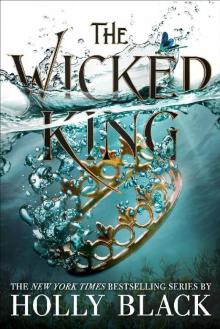 The Wicked King (The Folk of the Air #2)
The Wicked King (The Folk of the Air #2)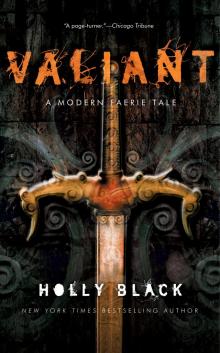 Valiant
Valiant The Coldest Girl in Coldtown
The Coldest Girl in Coldtown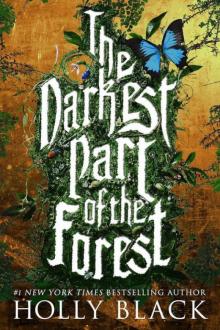 The Darkest Part of the Forest
The Darkest Part of the Forest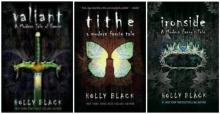 Tithe
Tithe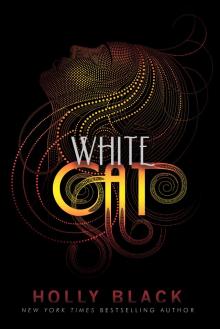 White Cat
White Cat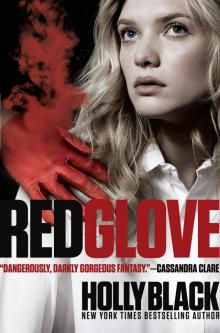 Red Glove
Red Glove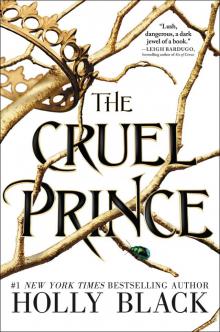 The Cruel Prince
The Cruel Prince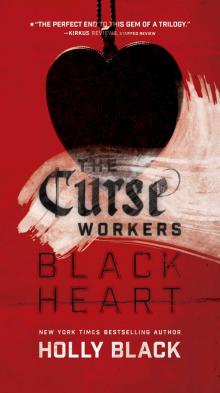 Black Heart
Black Heart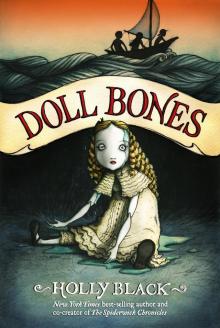 Doll Bones
Doll Bones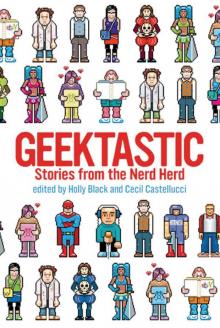 Geektastic: Stories from the Nerd Herd
Geektastic: Stories from the Nerd Herd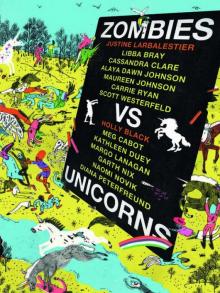 Zombies Vs. Unicorns
Zombies Vs. Unicorns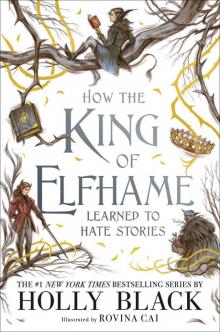 How the King of Elfhame Learned to Hate Stories
How the King of Elfhame Learned to Hate Stories The Poison Eaters and Other Stories
The Poison Eaters and Other Stories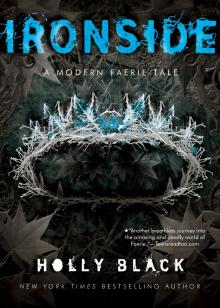 Ironside
Ironside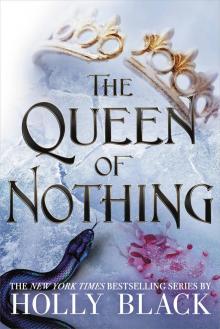 The Queen of Nothing
The Queen of Nothing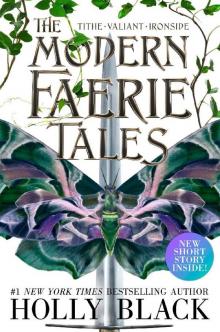 Modern Faerie Tales
Modern Faerie Tales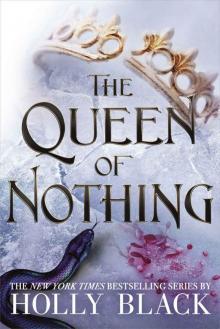 The Queen of Nothing (The Folk of the Air #3)
The Queen of Nothing (The Folk of the Air #3)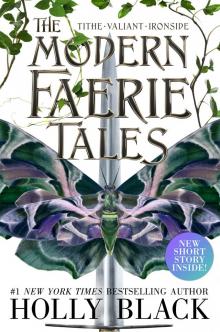 The Modern Faerie Tales
The Modern Faerie Tales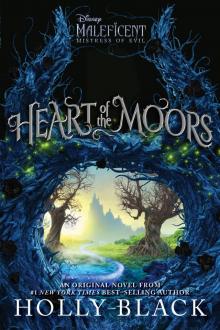 Heart of the Moors
Heart of the Moors The Golden Tower
The Golden Tower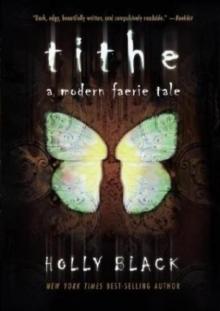 Tithe mtof-1
Tithe mtof-1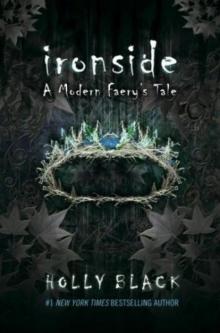 Ironside mtof-3
Ironside mtof-3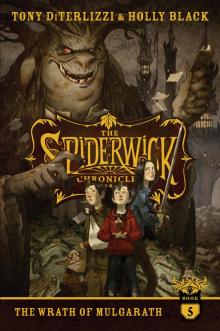 The Wrath of Mulgarath
The Wrath of Mulgarath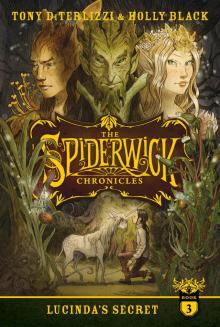 Lucinda's Secret
Lucinda's Secret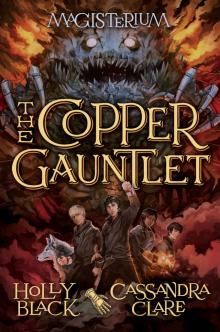 The Copper Gauntlet
The Copper Gauntlet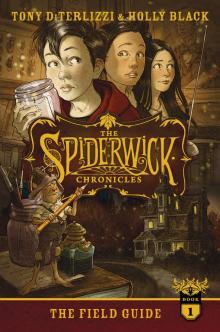 The Field Guide
The Field Guide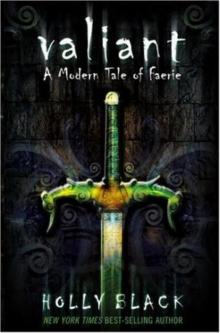 Valiant mtof-2
Valiant mtof-2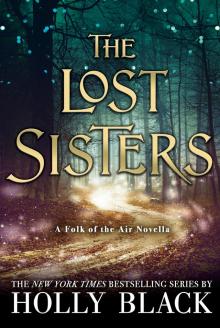 The Lost Sisters
The Lost Sisters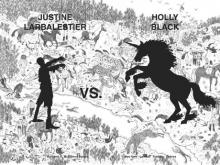 Zombies vs. Unicorns
Zombies vs. Unicorns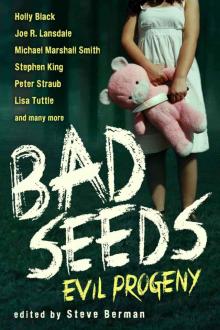 Bad Seeds: Evil Progeny
Bad Seeds: Evil Progeny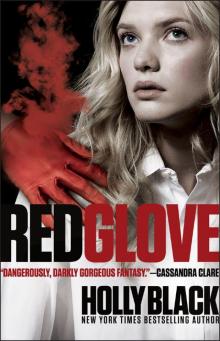 Red Glove (2)
Red Glove (2)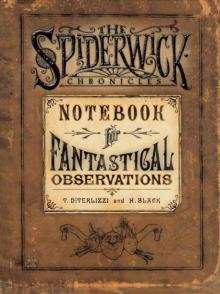 Notebook for Fantastical Observations
Notebook for Fantastical Observations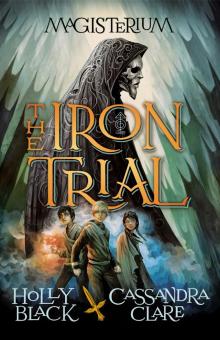 The Iron Trial
The Iron Trial Welcome to Bordertown
Welcome to Bordertown